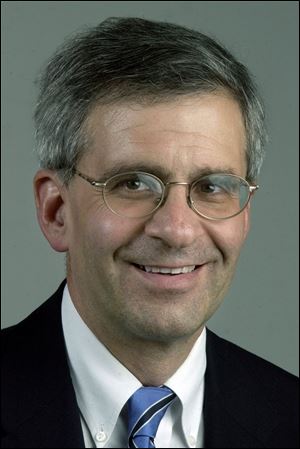
COMMENTARY
In New Hampshire, the GOP is at a fork in the road
8/18/2013CHATHAM, N.H. — The Baldface Brook Trail runs through here. The Chandler Gorge Trail runs through here. The campaign trail to the White House runs through here.
Not much politically is running through New Hampshire right now. But in a few days, Sen. Ted Cruz will be the big guest in Dublin (population 1,597) in the southwestern part of the state. His visit is far more significant than it might seem on the surface.

Pittsburgh. David M. Shribman
The Texas Republican’s outlook — specifically his conviction that Republicans prevail in presidential contests only when they nominate candidates who lean discernibly to the right rather than flop around in the middle — is at the center of the most important struggle in American politics today.
Since the end of World War II, some political scientists and commentators have argued that the Republican Party is composed of two subparties, a presidential party and a congressional party. This theory holds that the political figures who predominate in GOP presidential campaigns are different from those who pursue their efforts mainly on Capitol Hill — and that there is an inherent struggle between them.
In the contemporary reckoning, the presidential Republicans include such figures as Gov. Chris Christie of New Jersey, former Gov. Jeb Bush of Florida, and maybe Gov. Bobby Jindal of Louisiana, all potential White House candidates. In addition, there are two Ohioans who have not indicated presidential aspirations, Gov. John Kasich and Sen. Rob Portman.
Sen. Rand Paul of Kentucky and Sen. Marco Rubio of Florida, two White House aspirants, seem to fall into the congressional category.
There is another important division that soon will come into play — a debate over whether the party’s 2014 House strategy, implicitly encouraging Republicans to play the conservative card in their home districts — which tend to be homogeneous and right-leaning — can be applied to the 2016 race. Presidential Republicans worry that such a strategy will undermine the party’s White House hopes.
The critical elements of the electorate will be different in 2016 than in 2014. The GOP likely will retain possession of the House next year and has a small chance of taking over the Senate. That would cheer Republicans, who are starved for victory after a disappointing political experience last November.
Then Republicans will hold their nomination fight in 2016 among primary voters who will be substantially the same as the 2012 primary electorate.
But that won’t change the national electoral makeup, which will be even less white in 2016 than it was in 2012. Republicans are engaged in a philosophic fight when their real battle is demographic.
Right now, former Secretary of State Hillary Clinton would defeat any of the leading Republican presidential contenders, according to a Marist College poll.
The hiking trails that wind through Evans Notch hereabouts are long. They are also well-traveled. In those ways, they are like the campaign trail.
But Republicans, bitter after two losses to President Obama, are not eager to trek the same trail again. At this early stage, they are still deciding which way to go.
As a poet from this state once said, that will make all the difference.
David Shribman is executive editor of the Pittsburgh Post-Gazette.
Contact him at: dshribman@post-gazette.com